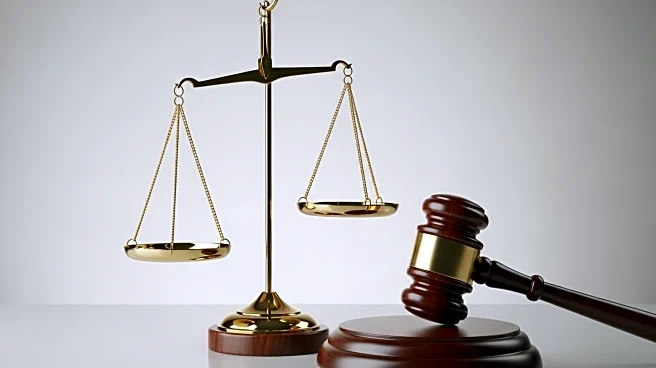What's Happening?
The issue of accountability among federal judges has come under scrutiny following revelations about controversial plea deals. A notable case involves Sam Kent, a former federal judge who faced serious allegations of rape. Instead of a conviction, Kent accepted a plea deal that resulted in a 33-month jail sentence, allowing him to retain his salary. This situation has raised concerns about the leniency and lack of accountability in the judicial system, particularly when it comes to federal judges who are perceived to evade severe consequences for serious offenses.
Why It's Important?
The implications of this case are significant for the U.S. judicial system and public trust in legal institutions. The ability of federal judges to negotiate plea deals that allow them to retain their positions and benefits despite serious allegations undermines the integrity of the judiciary. It raises questions about the checks and balances in place to ensure accountability and justice. This issue could lead to calls for reform in how judicial misconduct is handled, potentially affecting public policy and legal standards across the country.
What's Next?
The controversy surrounding federal judges and plea deals may prompt legislative or judicial review to address accountability gaps. Stakeholders, including lawmakers and legal advocacy groups, might push for stricter regulations and oversight mechanisms to prevent similar situations. Public pressure could lead to discussions on reforming judicial conduct policies, ensuring that judges are held to the same standards as other public officials.
Beyond the Headlines
This situation highlights broader ethical concerns within the judicial system, including the balance between judicial independence and accountability. It may also spark debates about the role of plea deals in the justice system and their impact on victims' rights and public perception of fairness. Long-term, this could influence cultural attitudes towards the judiciary and legal processes in the U.S.











